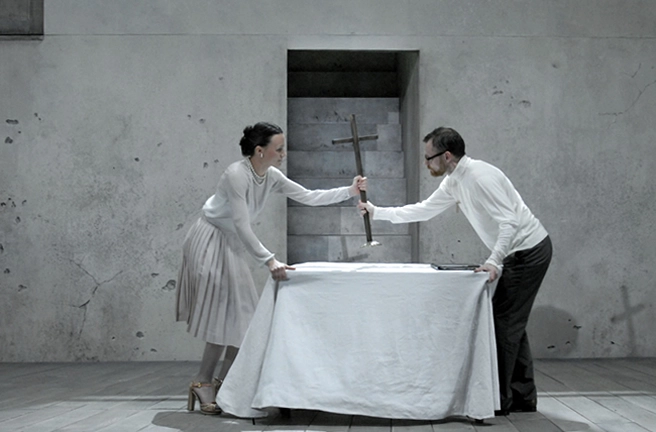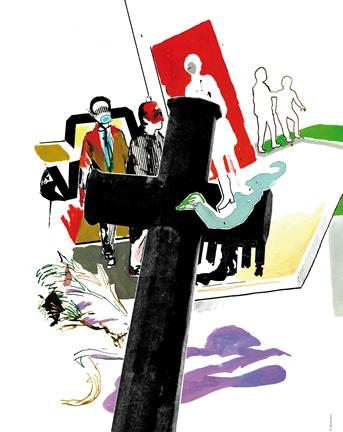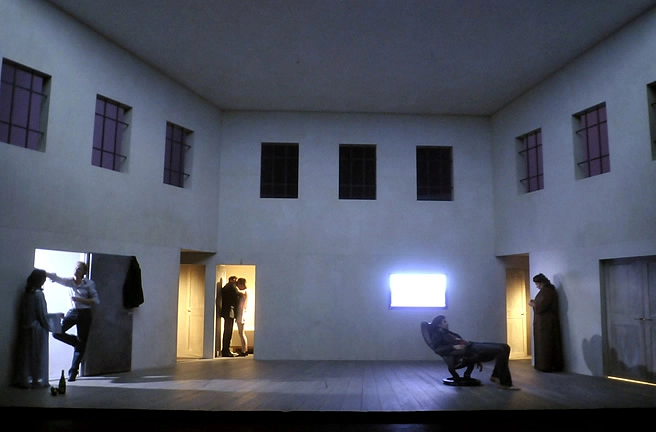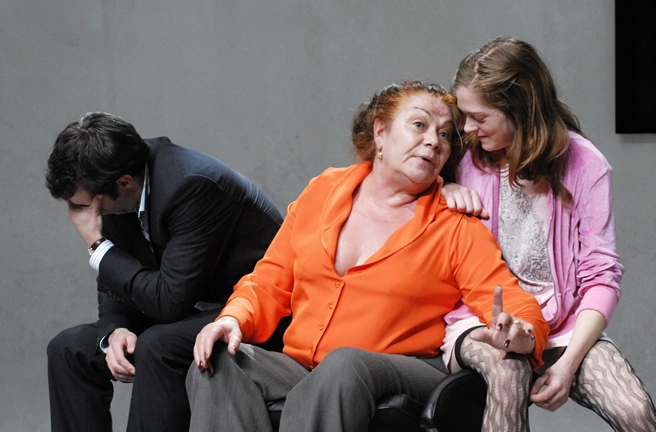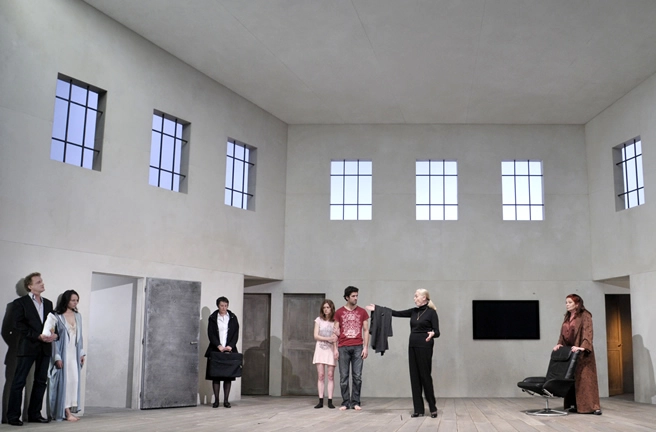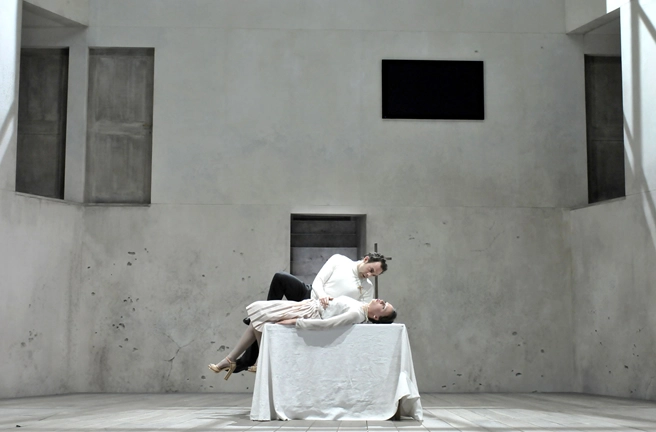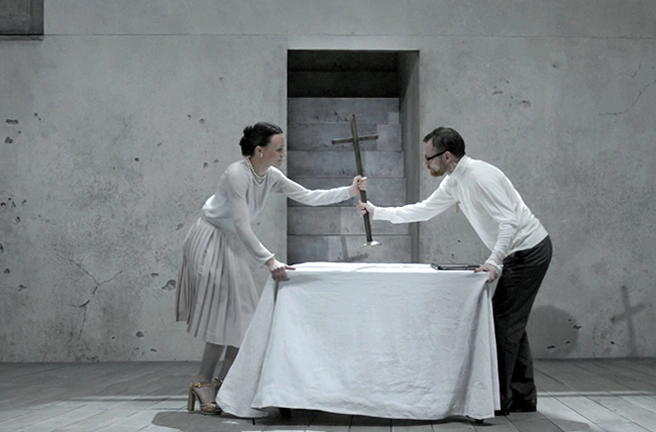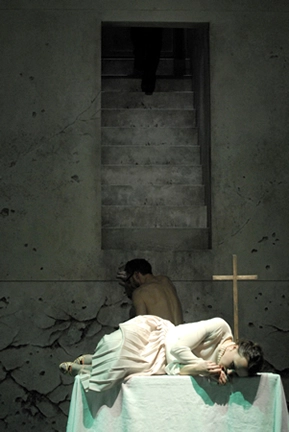Tartuffe
September 17 2008 to October 25 2008
Théâtre de l'Odéon
 Odéon 6e
Odéon 6e
It is a great offence to vices to expose them to public ridicule.
Molière
We «speak the language of Molière» just as the Germans «speak the language of Goethe» and the English that of Shakespeare. Molière is the beating heart of our great theater tradition. Molière the playwright is a national treasure. But Molière the novelist ? If he never existed, it is up to us to invent him says Stéphane Braunschweig.
The future director of the Théâtre de la Colline, likes to tackle major plays by pulling out what he calls their « underlying novel ». This method of inquiry, which is as intuitive as it is faithful to the text, allows him to give all the questions raised in the text, their sparkle and shine, just by letting himself be guided by the unexpected surprises they provoke.
In this case, his point of departure is the following: Tartuffe is undoubtedly a hypocrite, but that is not sufficient enough to explain the influence he welds over his main victim. Which means one of two things ; either he is a great impostor - but then the entire Orgon household should have succumbed to his traps, and not only the head of the household ; or his mask of piety is not a very believable one, in which case he shouldn't have fooled anyone, not even Orgon. Which leads him to the question : why does Orgon let himself get taken in by his host ? Why does the « fake » pious and devout Tartuffe fascinate his prey so much that the latter is ready to offer him the hand of his daughter and full possession of all his worldly goods ? And so it appeared to Braunschweig, that Tartuffe is first and foremost a cracked mirror that Orgon uses in order to divert all attention from his own shortcomings. Tartuffe's success should in fact be interpreted as a symptom of Orgon's own sickness. And this is where the novel-conjecture comes in : « One must imagine Orgon's life, his strict education, his relation with his bigoted mother ; his first marriage to a woman whom his mother liked, and who therefore had to be light years from an incarnation of joy ; the compensation he drew from his social and professional success and the steady growth of his material wealth ; his second marriage with Elmire, a young, joyful woman who is sensual and with whom Orgon is able to discover all the joys of the flesh and at the same time, jealousy (...). The obsession with sin, the guilt linked with sex, jealousy that drives one mad, the need for purity in a world that one feels to be completely corrupt, everything comes together to make Tartuffe the providential man, a doctor of the soul, capable of healing the « sickness » that Orgon and his family suffer from (the children being no less immune to its symptoms than their father or their grandmother...)
In this way, Braunschweig continues, beyond the comical dimensions of Tartuffe, to lead an inquiry that he began in his stage productions of Brand, Measure for Measure or Peer Gynt : the theme of spiritual temptation as the hidden facet of all of our materialist obsessions.
